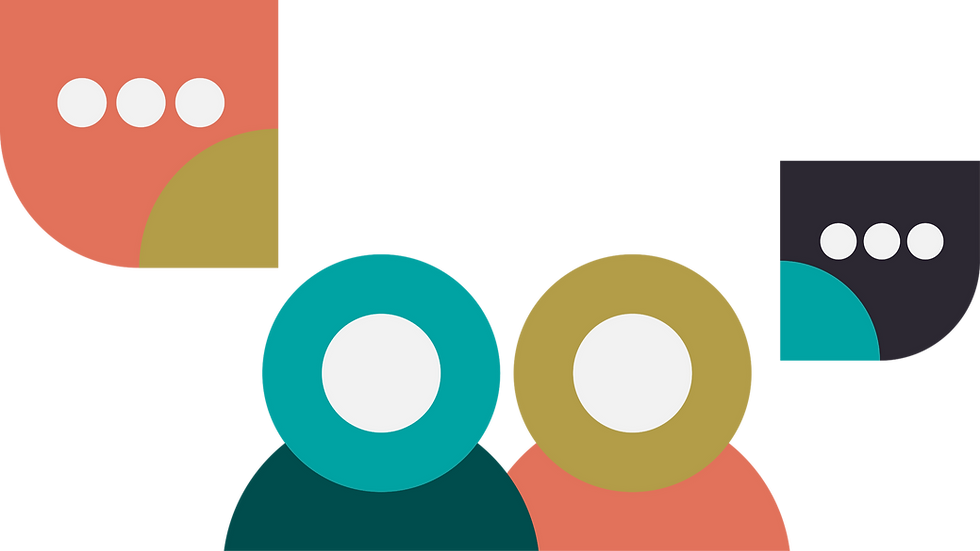Is Friendship Necessary?
In a world where we can survive on our own, order everything online, and connect digitally without ever meeting face to face, the question of whether we actually need friends becomes surprisingly complex. Many people report feeling lonely despite being constantly connected, while others find deep satisfaction in solitary pursuits. This raises fundamental questions about what friendship provides and whether it's essential to human flourishing or simply a pleasant addition to life.
The question becomes more pressing as traditional communities dissolve and people increasingly prioritize romantic relationships, career advancement, or family obligations over maintaining friendships. Some argue that friendship is a luxury for those with time and energy to spare, while others contend that close friendship is as vital to human wellbeing as food or shelter.
Our conversation will explore:
What does friendship provide that other relationships cannot?
Can we live fully meaningful lives without close friends?
How do we balance friendship with other demands on our time and attention?

Is Friendship Necessary?

In a world where we can survive on our own, order everything online, and connect digitally without ever meeting face to face, the question of whether we actually need friends becomes surprisingly complex. Many people report feeling lonely despite being constantly connected, while others find deep satisfaction in solitary pursuits. This raises fundamental questions about what friendship provides and whether it's essential to human flourishing or simply a pleasant addition to life.
The question becomes more pressing as traditional communities dissolve and people increasingly prioritize romantic relationships, career advancement, or family obligations over maintaining friendships. Some argue that friendship is a luxury for those with time and energy to spare, while others contend that close friendship is as vital to human wellbeing as food or shelter.
Our conversation will explore:
What does friendship provide that other relationships cannot?
Can we live fully meaningful lives without close friends?
How do we balance friendship with other demands on our time and attention?

In a world where we can survive on our own, order everything online, and connect digitally without ever meeting face to face, the question of whether we actually need friends becomes surprisingly complex. Many people report feeling lonely despite being constantly connected, while others find deep satisfaction in solitary pursuits. This raises fundamental questions about what friendship provides and whether it's essential to human flourishing or simply a pleasant addition to life.
The question becomes more pressing as traditional communities dissolve and people increasingly prioritize romantic relationships, career advancement, or family obligations over maintaining friendships. Some argue that friendship is a luxury for those with time and energy to spare, while others contend that close friendship is as vital to human wellbeing as food or shelter.
Our conversation will explore:
What does friendship provide that other relationships cannot?
Can we live fully meaningful lives without close friends?
How do we balance friendship with other demands on our time and attention?
Conversation Catalysts
At Premise, a Conversation Catalyst is a short story, essay, film, or poem that sparks reflection and connection. It’s the shared reference point that grounds each session and opens the door to meaningful and deep conversation.

Aristotle on Friendship (from Nicomachean Ethics, Books VIII & IX)
"What If Friendship, Not Marriage, Was at the Center of Life?" Atlantic Article
Preparation: < 1.5 hours
%20copy_edited.png)
We examine how ancient philosophy and contemporary journalism reveal friendship's role in human flourishing and social organization.
Aristotle on Friendship (from Nicomachean Ethics, Books VIII & IX)
Aristotle argues that friendship is not merely pleasant but essential to the good life, distinguishing between friendships based on utility, pleasure, and virtue. He contends that true friendship—grounded in mutual respect for each other's character—is necessary for moral development and human flourishing. Without friends who challenge and support our growth, Aristotle suggests we cannot fully develop as human beings.
_edited.png)
Aristotle on Friendship (from Nicomachean Ethics, Books VIII & IX)
"What If Friendship, Not Marriage, Was at the Center of Life?" Atlantic Article
Preparation: < 1.5 hours
We examine how ancient philosophy and contemporary journalism reveal friendship's role in human flourishing and social organization.
Aristotle on Friendship (from Nicomachean Ethics, Books VIII & IX)
Aristotle argues that friendship is not merely pleasant but essential to the good life, distinguishing between friendships based on utility, pleasure, and virtue. He contends that true friendship—grounded in mutual respect for each other's character—is necessary for moral development and human flourishing. Without friends who challenge and support our growth, Aristotle suggests we cannot fully develop as human beings.
Conversation Catalysts
At Premise, a Conversation Catalyst is a short story, essay, film, or poem that sparks reflection and connection. It’s the shared reference point that grounds each session and opens the door to meaningful and deep conversation.
Aristotle on Friendship (from Nicomachean Ethics, Books VIII & IX)
"What If Friendship, Not Marriage, Was at the Center of Life?" Atlantic Article

Text Set A
Preparation: < 1.5 hours
Session Description
We examine how ancient philosophy and contemporary journalism reveal friendship's role in human flourishing and social organization.
Aristotle on Friendship (from Nicomachean Ethics, Books VIII & IX)
Aristotle argues that friendship is not merely pleasant but essential to the good life, distinguishing between friendships based on utility, pleasure, and virtue. He contends that true friendship—grounded in mutual respect for each other's character—is necessary for moral development and human flourishing. Without friends who challenge and support our growth, Aristotle suggests we cannot fully develop as human beings.
Aristotle's analysis presents friendship as fundamental rather than optional. He asks: Can we become our best selves without relationships that value us for who we are rather than what we provide? What role does friendship play in moral and intellectual development?
"What If Friendship, Not Marriage, Was at the Center of Life?" Atlantic Article
This contemporary article challenges the assumption that romantic partnership should be our primary relationship, exploring how prioritizing friendship might reshape our understanding of commitment, intimacy, and community. The author examines evidence that close friendships provide emotional support, stability, and life meaning that rivals or exceeds what romantic relationships offer.
The piece questions cultural hierarchies of relationships and their consequences. It asks: What would society look like if we valued chosen family and deep friendship as much as romantic love? How might centering friendship address loneliness and social isolation in modern life?
Text Set A
Preparation: < 1.5 hours
Session Description
We examine how ancient philosophy and contemporary journalism reveal friendship's role in human flourishing and social organization.
Aristotle on Friendship (from Nicomachean Ethics, Books VIII & IX)
Aristotle argues that friendship is not merely pleasant but essential to the good life, distinguishing between friendships based on utility, pleasure, and virtue. He contends that true friendship—grounded in mutual respect for each other's character—is necessary for moral development and human flourishing. Without friends who challenge and support our growth, Aristotle suggests we cannot fully develop as human beings.
Aristotle's analysis presents friendship as fundamental rather than optional. He asks: Can we become our best selves without relationships that value us for who we are rather than what we provide? What role does friendship play in moral and intellectual development?
"What If Friendship, Not Marriage, Was at the Center of Life?" Atlantic Article
This contemporary article challenges the assumption that romantic partnership should be our primary relationship, exploring how prioritizing friendship might reshape our understanding of commitment, intimacy, and community. The author examines evidence that close friendships provide emotional support, stability, and life meaning that rivals or exceeds what romantic relationships offer.
The piece questions cultural hierarchies of relationships and their consequences. It asks: What would society look like if we valued chosen family and deep friendship as much as romantic love? How might centering friendship address loneliness and social isolation in modern life?
Conversation Catalysts
At Premise, a Conversation Catalyst is a short story, essay, film, or poem that sparks reflection and connection. It’s the shared reference point that grounds each session and opens the door to meaningful and deep conversation.
More conversation catalysts coming soon!

Text Set B
Preparation: < 1.5 hours
Session Description
At Premise, we’re always growing. Our sessions are shaped not only by the enduring questions we ask but also by the ideas and contributions of our participants and Chapter Leaders. We are a constructivist learning community, which means we build our learning experiences together.
More text sets for this question are on the way. Each one will follow our approach: short enough to prepare in under three hours, substantial and thought-provoking enough to spark deep discussion, and accessible to a wide audience.
In the meantime, we’d love to hear from you. If you have a suggestion for a story, essay, film, or poem that belongs here, please share it in the section below.
Text Set A
Preparation: < 1.5 hours
Session Description
We examine how ancient philosophy and contemporary journalism reveal friendship's role in human flourishing and social organization.
Aristotle on Friendship (from Nicomachean Ethics, Books VIII & IX)
Aristotle argues that friendship is not merely pleasant but essential to the good life, distinguishing between friendships based on utility, pleasure, and virtue. He contends that true friendship—grounded in mutual respect for each other's character—is necessary for moral development and human flourishing. Without friends who challenge and support our growth, Aristotle suggests we cannot fully develop as human beings.
Aristotle's analysis presents friendship as fundamental rather than optional. He asks: Can we become our best selves without relationships that value us for who we are rather than what we provide? What role does friendship play in moral and intellectual development?
"What If Friendship, Not Marriage, Was at the Center of Life?" Atlantic Article
This contemporary article challenges the assumption that romantic partnership should be our primary relationship, exploring how prioritizing friendship might reshape our understanding of commitment, intimacy, and community. The author examines evidence that close friendships provide emotional support, stability, and life meaning that rivals or exceeds what romantic relationships offer.
The piece questions cultural hierarchies of relationships and their consequences. It asks: What would society look like if we valued chosen family and deep friendship as much as romantic love? How might centering friendship address loneliness and social isolation in modern life?
